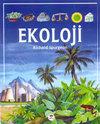番茄和辣椒膏残留对土壤性质和马铃薯生长的影响
Q3 Environmental Science
引用次数: 0
摘要
在马铃薯生长的田间试验中,对番茄酱工厂的残留物、绿番茄、冷加工番茄、辣椒废料、牛奶加工灰烬和城市废物进行了七种不同的应用。秸秆与矿质N、P、K肥料配合施用,作为土壤改良剂。这些废物被施用于土壤中,并允许堆肥5个月,然后进行龙葵种植。马拉贝尔栽了下来。植被期土壤钾、硼矿物质含量降低,Na含量增加。叶片中氮、锌、硼含量均低于适宜水平。叶片中铁含量高于充足值,铬含量低于临界值。青番茄和红辣椒废弃物对叶片Cd的影响呈递减趋势。添加N、P等矿物质的红辣椒废弃物对块茎中多种元素的增加作用达到鲜重最高水平。块茎干重对Co和Pb的影响明显高于大多数给定值。矿物钾+废氮、磷处理块茎产量最高。块茎直径为50 ~ 55 mm的块茎受不同处理的影响最大,其中“废土”处理效果最好。“废钾+矿质氮、磷”对各指标均有主导作用本文章由计算机程序翻译,如有差异,请以英文原文为准。
Influence of Tomato and Paprika Paste Residues on Soil Properties and Potato Growth
In this study seven different applications were performed with the residues of tomato paste factories, green tomatoes, cold processed tomatoes, paprika wastes, ashes of milk processing, and urban wastes in a field experiment on potato growth. The residues were combined with the mineral N, P, K fertilizer as soil amendments. These wastes were applied to the soil and allowed to compost for five months before the Solanum tuberosum cv. Marabel were planted. During vegetation the K and B minerals in the soil decreased whereas, Na increased. The nitrogen, Zn, and B of the leaves were below adequate levels. The iron in the leaves was above adequacy and Cr was under the critical value. The green tomato and paprika wastes had a diminishing effect on leaf Cd. The paprika paste wastes with the addition of minerals N and P increased many elements in the tubers to the highest level by fresh weight. Co and Pb were considerably higher by the dry weight of the tubers than most of the given values. The tuber yield was greatest with “Mineral K +Wastes N, P”. Tubers with a diameter >55 mm were affected by the treatments significantly and “Wastes Only” was the most effective treatment. “Waster K+Mineral N, P” had a dominating effect on all of the
求助全文
通过发布文献求助,成功后即可免费获取论文全文。
去求助
来源期刊

Ekoloji
环境科学-生态学
CiteScore
1.10
自引率
0.00%
发文量
0
审稿时长
>12 weeks
期刊介绍:
Cessation. Ekoloji is an international journal that focuses on papers that report results from original research on all disciplines engaged in the field of environmental research. We welcome articles that cover the entire spectrum of environmental problems and environmental pollutants, whether chemical, biological or physical. Its coverage extends to all environmentally related issues: air and water pollution, solid waste, noise, recycling, natural resources, ecology and environmental protection. It includes articles on basic and applied environmental pollution research, including environmental engineering and environmental health. All types of pollution are covered, including atmospheric pollutants, detergents, fertilizers, industrial effluents, metals, mining wastes, oil, pesticides, plastics, radioactive materials and sewage. It also includes research papers on ecological and environmental issues such as climate change, biodiversity. The primary criteria for publication are scientific quality and ecological/environmental significance.
The journal will be read and contributed to by biologists, applied ecologists, environmental scientists, natural resource specialists, environmental engineers, environmental health specialists, agro-ecologists, veterinaries, agricultural engineers, landscape planners and designers. The journal welcomes full "research papers" and short "research notes", only in the English language.
 求助内容:
求助内容: 应助结果提醒方式:
应助结果提醒方式:


